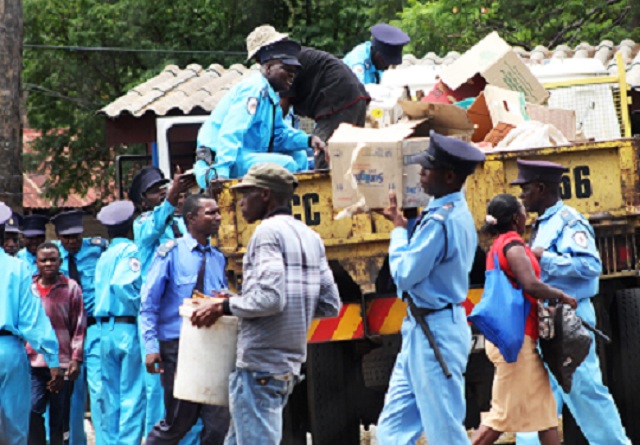By Promise Dube
The Bulawayo Progressive Residents Association (BPRA) has expressed serious concerns about the city council’s proposal to subcontract services as a means of cutting costs, arguing that a more effective revenue collection approach is required.
This comes after the Bulawayo City Council (BCC) announced plans to dissolve its municipal police force and hire a private security firm on a rolling 12-month contract as part of a slew of initiatives to reduce its payroll cost and boost security.
However, according to BPRA, subcontracting has proven to be the key driver and loophole for corruption in BCC.
“This move has seen residential stands left unserviced and residents having to pay top-ups. The implementation of the city parking project which has proved to be expensive for motorists. The yet to be completed Egodini project is still a nightmare for the city as it has disrupted the previously effective transport services in Bulawayo,” read the statement from BPRA.
BRPA said Bulawayo is currently facing a myriad of service delivery challenges from clean water and sewer reticulation, health care services and waste management.
“Residents have gone weeks without any water supply to their households. The water rationing schedule leaves residents stranded as some areas like Tshabalala Extension do not have easily accessible alternative water sources, such as community boreholes,”read the statement.
“Residents often resort to unsafe sources of water to acquire the precious liquid , leaving residents at a great risk of contracting water borne diseases such as cholera. Other service delivery challenges that Bulawayis is facing include poor road networks, exorbitant council rates which are based on estimates due to the local authority’s failure to effectively carry out the water meter reading exercise, coupled with poor health services which have made clinics death zones rather than safe zones. ”
In light of these challenges, BPRA said residents believe a robust revenue collection strategy is essential but disagree with the subcontracting of services proposed by BCC.
“The move by BCC targeting low grade workers will expose workers to abuse and exploitation by those deemed to be permanent workers. Replacing permanent staff with contract workers as a means of fighting corruption will eventually lead to increased corruption as the contract workers will be liable to the employer only for a short period of time as compared to permanent workers,” BPRA said.
The organisation also said that due to a bureaucratic system that exists in Zimbabwean Local Authorities, corrupt activities might be undetected for a long period of time making it difficult to deal with perpetrators.
BPRA argued that terminating the permanent workers contracts’ may lead to BCC having to deal with lawsuits that might attract high legal costs.
“Replacing permanent staff with contract staff will come at a cost for the city of Bulawayo as the strategy highlights that there will be a need to advertise a new contract post, conduct interviews and trainings for the selected candidates. This in turn means an increase in unbudgeted funds channeled towards such an exercise, a cost which will only be pushed towards the already strained residents of Bulawayo,” said the organisation.
If not properly monitored, having contract workers may further reduce the quality of services provided by BCC, as contract workers may not share the same interest in the long term strategy and vision of the city unlike permanent staff members who have a buy-in to deliver on the City’s strategy, BPRA noted.
BPRA advised BCC to come up with other strategies to fight rampant corruption ,explore other alternative revenue collection strategies.
“The contracting out of services by local authorities has proved to be a best practice in terms of being an alternative revenue stream worldwide. BCC can explore this option as it has worked for our sister cities such as Johannesburg,” said the organisation.
“BCC must explore more revenue strategies such as resuscitating and modernising local community beer halls and fully utilising recreational centres such as Centenary Park.”

